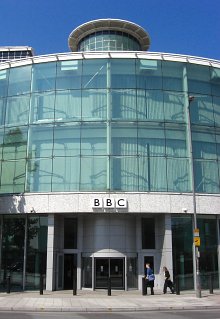Action threat over BBC pay
Unions have warned the BBC that a strike ballot will be run among thousands of members unless a pay offer is improved.

Members based at Television Centre could be balloted for strike action (Picture: Tony Scott)
At a meeting of BECTU, NUJ, and Amicus representatives in London on 6 June, delegates from across the UK voted unanimously against a two-year pay offer based on a 3% increase in August 2007, and 2% a year later.
A motion passed by delegates called for a "significantly improved offer", without which "we will move immediately to an industrial action ballot". BBC managers responded almost immediately by offering further pay talks on Monday 11 June.
Any strike ballot would include employees of subsidiary BBC Resources Ltd, whose pay bargaining is closely linked to the BBC itself, where a similar pay offer was tabled on 5 June. Although the pay anniversary date in Resources is 1 April, BECTU delayed negotiations in the company until the BBC's central position was clear.
The original union claim was for an increase of inflation plus 3%, aimed at closing the pay gap that was opened up in 2006 when staff received an increase lower than the retail price index.
The unions also claimed improvements in several areas of conditions of service, including annual leave, sick leave, and reward for taking on extra responsibilities.
A demand that target salaries for new staff, or those who are promoted, should be improved was turned down by the BBC when it tabled its offer on 22 May. However, BBC Resources said two weeks later that it was "still considering" whether to improve minimum salaries to 115% of the relevant pay band floor after three years in post, and 120% after six.
Explaining why it was offering a below-inflation increase for the second year running, the BBC said that the new formula for annual TV Licence increases would leave the Corporation under-funded by 1.5% every year until 2012.
Delegates at the joint union meeting on 6 June accused the BBC of forcing staff to subsidise the Licence fee through pay cuts, and were sceptical about the wide range of new services that executives had promised to introduce before they knew whether the government was willing to fund them.
Initiatives like the online i-Player, the roll-out of digital broadcasting, and a planned move of London departments to Salford, had all been announced before the Licence formula was fixed, leaving the BBC with a list of un-funded political obligations.
Pay increases are not expected to be the only area of BBC expenditure which will come under pressure due to the licence formula - rumours are already rife about thousands more job cuts, over and above the 3,000-plus that have been cut in the last three years, and there are plans for further privatisation of BBC departments beyond the sale of BBC Resources.
All three unions believe that unity will be essential in the coming months, and officials are likely to capitalise on the angry mood of members over pay to win concessions on job security and privatisation.
